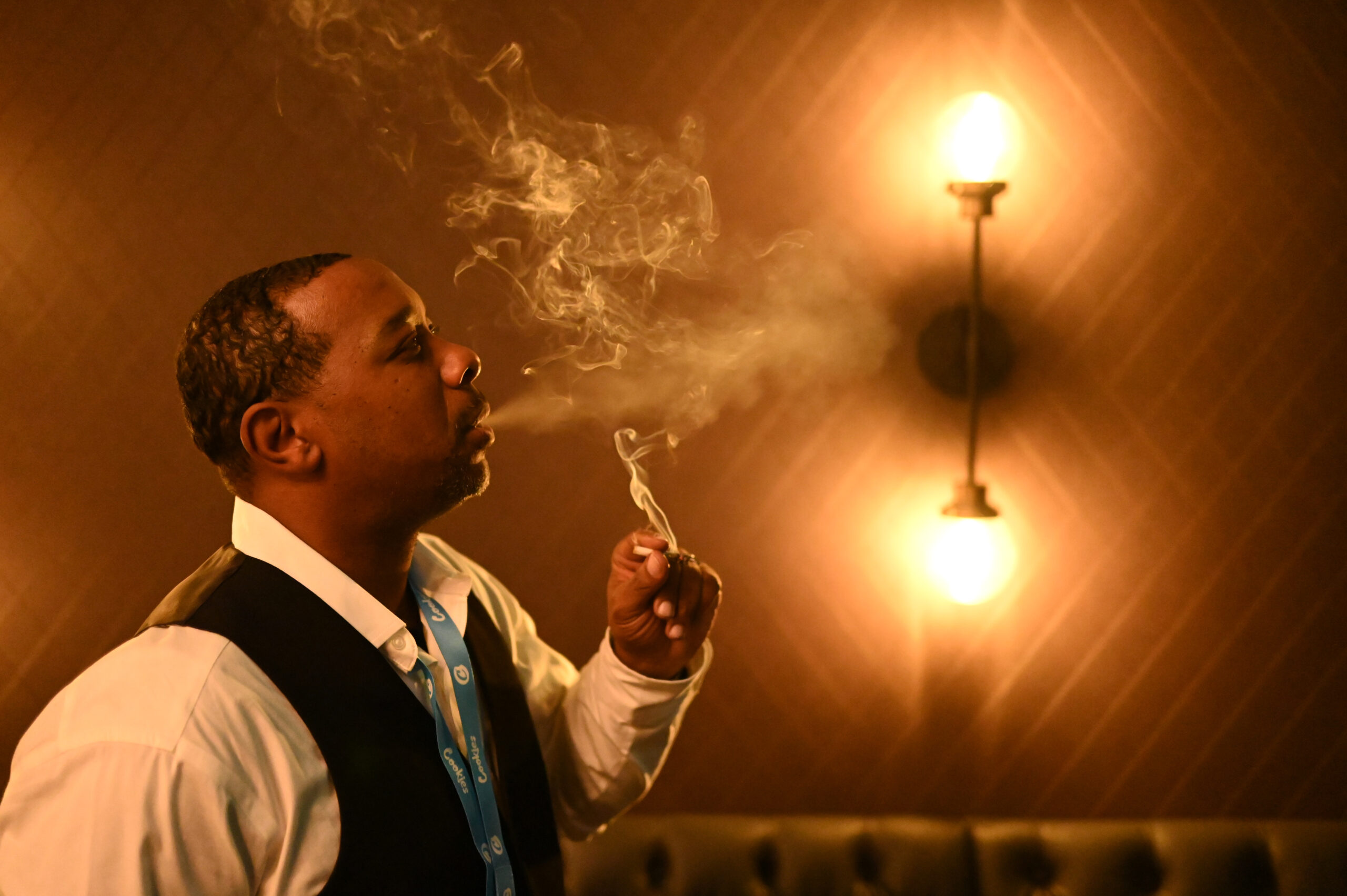Joseph Hunt finally opened his Mission District cannabis dispensary Union Station SF this month, the culmination of four years of permitting challenges, construction work and pandemic restrictions—and more than $1 million in sunk costs.
But as his business now gets off the ground, one significant portion of his operation got the green light Wednesday: the cannabis consumption lounge.
“We wanted to create an area for cannabis users to legally consume and remodeled the entire space to enable that,” Hunt said.
San Francisco’s Department of Public Health (SFDPH) allowed the reopening of the city’s cannabis consumption lounges Wednesday, lifting closure orders that have spanned the majority of the pandemic. The move came on the same day San Francisco lifted its indoor mask mandate as the city weighs reduced restrictions in correspondence with the subsiding wave of the Omicron variant.
Cannabis consumption lounges were placed in one of the highest-risk categories for businesses during the pandemic. Despite the lifting of restrictions in the city, patrons will still be required to provide proof of full vaccination or a negative Covid test in order to use the site.
Meanwhile, cannabis operators argue that the ban on in-house consumption failed to take into account the stringent filtration and ventilation systems San Francisco requires in order for lounges to legally operate in the city.
In order to accommodate what he envisioned for the business, Hunt rented a much larger space and constructed a system to isolate the lounge from the rest of his dispensary. He also spent more than $100,000 on an HVAC system to meet the Department of Public Health’s standards as part of its permitting process. Currently, seven cannabis consumption lounges are permitted in San Francisco.
Bars and restaurants opened much earlier during the pandemic, frustrating operators like Hunt.
“It’s kind of backwards that we’ve been held back as one of the last places allowed to open, but we actually have some of the best ventilation systems for closed spaces indoors,” Hunt said.
As part of an effort to help alleviate some of the impact of the shutdown, SFDPH is refunding licensing fees for the lounges and waiving fees for the current fiscal year.
The waiting game for cannabis business owners has played out amid a challenging environment for many cannabis operators who say increased competition, burdensome regulations and sky-high taxes are squeezing their thin profit margins.
Brendan Hallinan, a cannabis attorney who helped formulate permitting and safety standards for cannabis lounges in San Francisco, said when lounges were allowed to reopen briefly last year, businesses imposed the same vaccination requirements as restaurants, prohibited sharing of cannabis products and put in portable fans and UV light air purifiers at the request of public health officials.
Cannabis business owners and advocates say the city needs to be transparent in how consumption lounges are classified and to provide guidelines on what would lead to closures.
“What we want to understand is where cannabis lies in the big picture: Is it riskier than going out to a bar and sitting and drinking with people?” Hallinan said.
Nate Haas, of Mid-Market dispensary Moe Greens, said the cannabis lounge is a key part of his business’ strategy. He sent out a flurry of emails and text messages to customers Wednesday notifying them the dispensary and its lounge were fully open for business.
“We wanted to create a destination where not only can you get your product, but you can also use the lounge to smoke and try out new equipment for a small rental fee,” Haas said. “Taking that piece out of our business really meant we couldn’t complete the circle of what we’re offering to people.”
Haas added that lounges provide a safe space to consume cannabis for customers prohibited by lease agreements from smoking in their homes.
“There’s no sense in looking behind, we’re looking forward,” Haas said. “And, for the first time in a long time, feeling optimistic of the future.”
